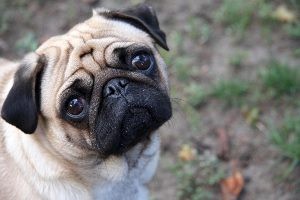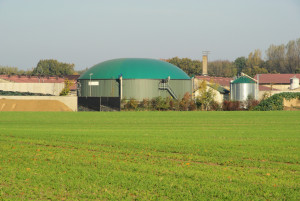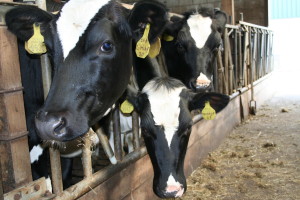Worldlog Settimana 10 – 2015
I Paesi Bassi sono nel centro del commercio internazionale malefico di cani. Questo è il risultato di un sondaggio, fatto da un canale televisivo regionale nella provincia olandese di Noord Brabant. L’indagine conferma i tanti segnali che gli allevatori e commercianti malefici, hanno via libera e che si fanno milioni di euro con il commercio in cani malati, spesso provenienti dall’ Europa dell’Est. Il nostro partito chiede da tempo attenzione per questi grandi problemi nel commercio canile. I cuccioli vengono allevati in circostanze sofferenti nell’Europa dell’Est per poi essere venduti nei Paesi Bassi tramite siti web di aste, ammesso che sopravvivano il viaggio. Ho chiesto alla Camera di impegnarsi per la questione. E’ ora di implementare delle misure!
Gli Americani debbono mangiare meno carne. Questo dice un report della Dietary Guidelines Advisory Committee (Comitato di Consiglio sulle Linee Guida Dietetiche) che è uscito recentemente. La commissie lavora per il presidente Obama, su delle nuove linee guida dietetiche per gli Americani. Oltre alla salute, l’ambiente viene considerato un’importante fattore per mangiare meno carne. Questa è un’ottima notizia, ma non tutti sono contenti.
Anche Nei Paesi Bassi dobbiamo mangiare meno carne. Grazie all’allevamento del bestiame intensivo, abbiamo da anni un surplus di concime. Il governo cerca di risolverlo tramite incentivi sull’energia generata dal concime. Queste fabbriche sono però molto controversiali. Ecosistemi nell’agricoltura vengono ulteriormente disturbati e l’energia generata è poca. Inoltre, le fabbriche di concime possono creare grandi rischi per l’ambiente, come ad esempio la salute degli abitanti. L’unica soluzione del problema del concime sta nel diminuire il bestiame. Come dice mia collega Esther Ouwehand: “Meno animali, meno concime, meno problemi.”
Mia collega Anja Hazekamp, che ci rappresenta nel Parlamento Europeo, ha chiesto di finalmente proibire il consumo di carne e latte da animali clonati. Questa proposta c’è dal 2013, ancora prima che noi avessimo un seggio nel Parlamento Europeo!
Un buona notizia questa settimana. Dopo anni di una gestione conservativa dell’agricoltura, il presidente francese François Hollande spinge i contadini verso l’agro-ecologia. Durante un’intervista ha parlato di utilizzare dei prodotti meno dannosi e sfruttare la scienza e la tecnologia per rivalutare le risorse che sono così rare. Brava Francia, che seguano i Paesi Bassi!
Notizia: presto (18 marzo) avranno luogo le elezioni delle Province Olandesi e delle regioni per quanto riguarda la gestione dell’acqua. L’elenco è dominato da uomini, con una media del 69.4 percent. Solo il nostro partito ha più donne che uomini: 53% è donna!
Cordiali saluti,
Marianne
The Netherlands are a key player in the international rogue trading of dogs. This has been shown by a new investigation conducted by a regional broadcaster from the Dutch province of Noord-Brabant. The Omroep Brabant broadcaster investigation has confirmed the numerous signs that unscrupulous breeders and traders have free play and that millions are earned on trading sick puppies, mostly from Eastern Europe. Our party has long been calling for attention for the large-scale abuses in the dog business. Puppies are bred under appalling conditions in Eastern Europe and then end up in the Netherlands via Marktplaats, provided they survive the trip. People don’t know what they are buying and often end up with critically ill dogs. With new Parliamentary Questions, I have called the government to finally do something about this. Really, now is the time for action!
Americans should cut down on eating meat. That is what it says in a recently published report of the Dietary Guidelines Advisory Committee. On the instructions of President Obama, the Committee has worked on new dietary guidelines for Americans. In addition to health reasons, the environment is mentioned as a very important reason to cut down on eating meat. I think this is great news, but not everyone is happy about it.
Meat consumption should also be reduced drastically in the Netherlands. Due to intensive livestock farming, we have had to contend with a huge manure surplus for years. The government has been trying to solve this problem by providing substantial subsidies for fermentation of manure. However, these manure plants are very controversial. Agricultural cycles are even more disrupted and manure fermentation hardly yields any energy. In addition, manure plants entail major risks for the environment, for example, with regard to the health of residents. The only solution to the manure problem is a reduction of livestock. As put by my colleague Esther Ouwehand: “Fewer animals, less manure, fewer problems.”
Anja Hazekamp, my colleague who represents us in the European Parliament, has called to finally ban the consumption of meat and milk from cloned animals. This proposal has been on the shelf since 2013, which was even before we had a seat in the European Parliament!
Good news this week. After years of conservative agriculture policies, the French president, François Hollande, pushes farmers towards agro-ecology. In an interview, he spoke about using less harmful products and obtaining benefit from science and technology to re-value scarce resources. Chapeau France, now it’s time for the Netherlands to follow suit!
Fun fact: Soon (18 March), there will be elections for the Provincial Council and the Dutch water boards. With an average of 69.4 per cent, males dominate the lists of candidates. The only party that has more female than male candidates is our party: 53 per cent are female!
Kind regards,
Marianne


